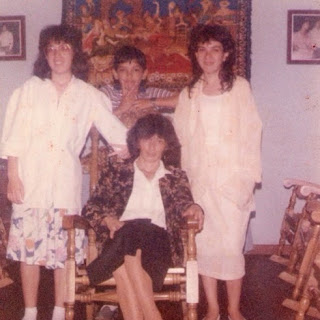socially present & active
It is our second week in the semester and I am still trying to figure out what it means to be present and active in the Web 2.0 realm. As Dr. Dennen stated in her feedback - it "isn't about being the most active person, but rather about exploring what it means to be active." I read this and wondered what does it indeed mean to be active? Am I "active" when reading my classmates' blog posts and discussions. This week has been a pretty long one and I haven't really been active. By that, I mean I didn't have much interaction until today, Sunday. But what does being active mean? Posting every other day? Interacting and commenting on others' posts? I have made a Blogger and Twitter account so far. I don't post regularly but I think I'll find my rhythm soon. I don't know about making an Instagram yet! I deleted the app from my phone (not my account) about a year ago and it has been great! But I sometimes feel like I am missing out on certa...
